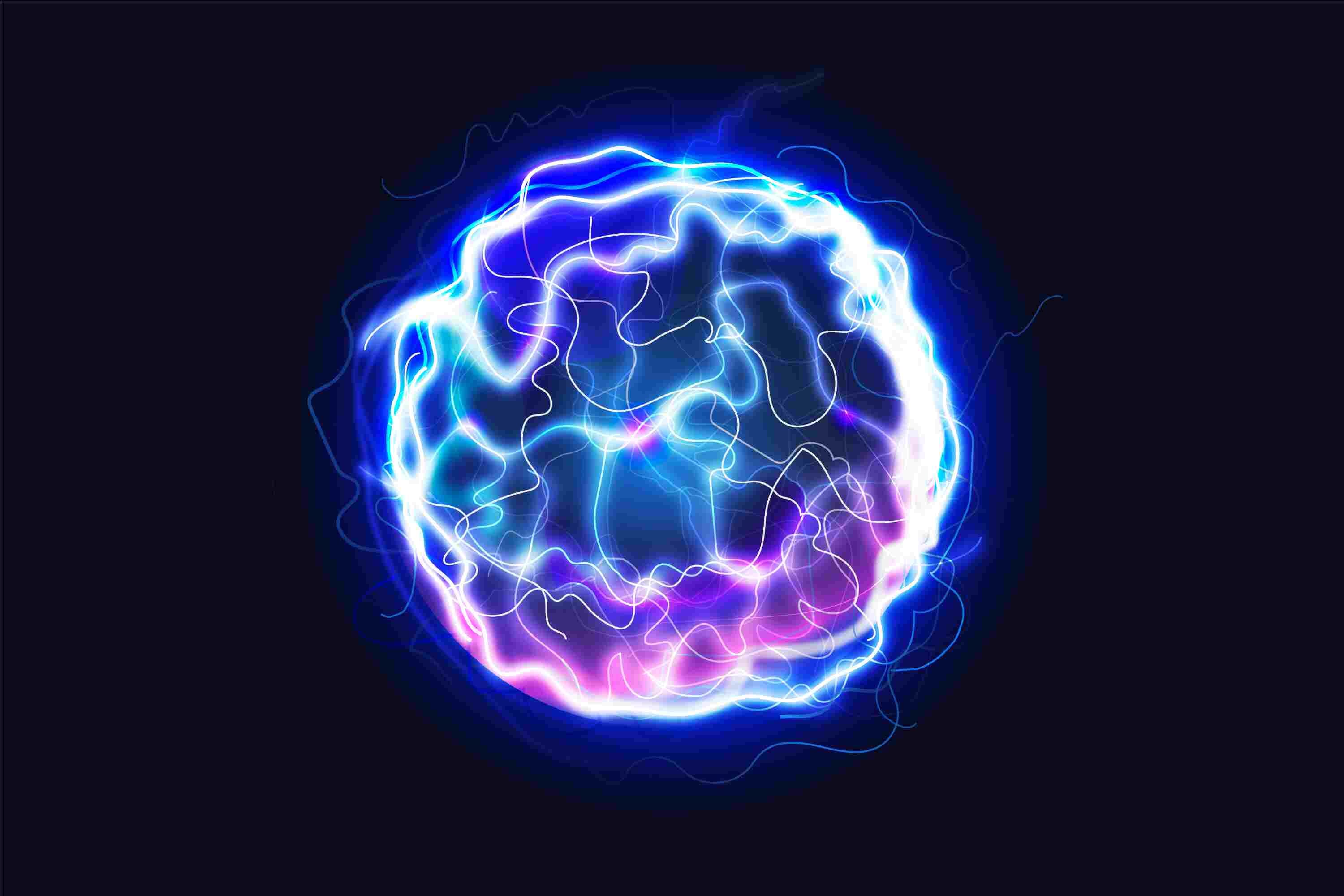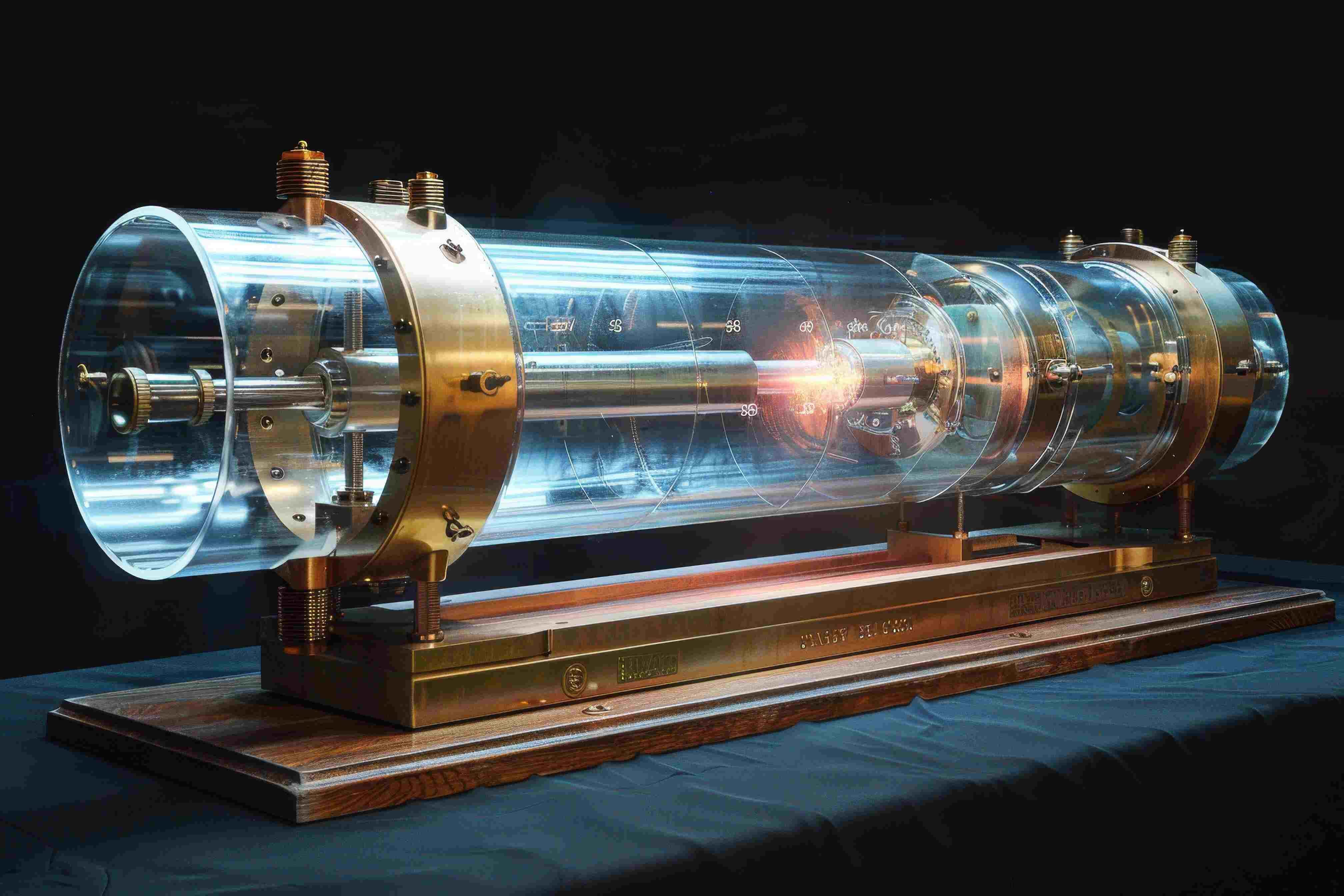Antimatter sounds like something from science fiction. Movies show it as a mysterious and potentially deadly substance that can cause immense destruction. What exactly is antimatter, and is antimatter dangerous, as people claim?
It simply means antimatter is the opposite of regular matter. All matter particles have an antimatter particle of the same mass but with an opposite charge. For example, the antimatter counterpart of an electron is called a positron, which carries a positive charge. When matter meets antimatter, they destroy each other and produce energy. That is why antimatter is both fascinating and potentially dangerous. In this article, we will know if antimatter is dangerous and how much it is harmful.
Table of Contents

What is antimatter?
Antimatter is a type of matter composed of antiparticles, which are the opposite of the charged elementary particles that make up ordinary matter. The concept of antimatter comes from the fundamental principles of particle physics and the theory of relativity.
Antimatter particles have the same mass as regular matter particles. But their electric charge is opposite. For example, the antimatter version of an electron (which is negative) is called a positron, and it has a positive charge.
How antimatter works.
The antimatter particles are exactly the opposite and nearly identical to particles of matter. It’s true that when a particle of antimatter meets its matter counterpart, it disappears and energy is released. The radiation in the energy form, high-energy radiation, is called Gamma rays.
Though it sounds like science fiction, it's part of the natural world. The energy generated when matter and antimatter collide is much greater than that of regular chemical reactions, like burning fuel. For example, one gram of matter and one gram of antimatter could provide the same amount of energy as a large nuclear bomb. And that’s just why antimatter is interesting and possibly dangerous.
Antimatter vs matter
Antimatter is like a mirror version of matter. Both have the same mass but opposite charges. For example, an electron is a matter particle with a negative charge. Its antimatter partner is the positron, which has a positive charge.
Another example is the proton. It has a positive charge. Its antimatter version, the antiproton, has a negative charge. These pairs are called antiparticles.
When a particle comes into contact with its corresponding antiparticle, they eliminate each other in a process known as annihilation, releasing a highly energetic burst.
Scientists think the universe began with equal amounts of matter and antimatter. But today, we only see matter. Where did the antimatter go? That is still a mystery.
Studying antimatter helps scientists understand the early universe. It may also lead to new technologies in the future, like powerful energy sources or advanced medical tools.
Although antimatter and matter are opposites, they are deeply connected. Learning about both can unlock many secrets of the universe.
How dangerous is antimatter?
Energy Release
The main danger of antimatter is the energy of annihilation. The result of coming into contact with matter, however, is a powerful explosion if a small amount of antimatter were to come into contact with matter. A small amount could wreak havoc.
For example, if antimatter and matter bumped into each other, just one milligram to one milligram. The explosion would be equivalent to thousands of kilograms of TNT.
'It shows how powerful antimatter can be, and how dangerous it is if you don't handle it properly,' said Major Seifert.
📚 Recommended Books for You
Antimatter is one of the universe’s greatest mysteries. But it doesn't have to be hard to understand. This book makes complex science simple and exciting.
🧠 What You’ll Learn:
- What antimatter is
- How it could change the future
- Why it matters in modern physics
📖 Book Title: Antimatter ( Oxford Landmark Science)
Rated 4.5 out of 5 stars by 232 readers worldwide.
Why You'll Love It:
Clear language, real examples, and exciting facts. You don’t need a science background, just curiosity.
Ever wondered why antimatter is called the universe’s most powerful mystery? Most sources are too complex, but this book breaks it down in a way anyone can understand.
Can Antimatter Be Weaponized?
Some people are worried that antimatter poses too big a risk of releasing a lot of energy in a weapon. A nuclear bomb is ten times more powerful in theory than an antimatter bomb. However, there are many obstacles to building such a weapon.
First, making antimatter is expensive and very difficult. Even a tiny amount of antimatter needs a lot of energy to make, and it would cost trillions of dollars to produce one gram of antimatter. Safely storing antimatter is also an enormous problem since it needs to be insulated from all matter, including the container in which it resides. It turns out, then, that the idea of antimatter weapons is not much of a threat after all.
Antimatter explosion
Antimatter reactions produce immense energy. When antimatter comes into contact with matter, they immediately destroy each other in an event that releases pure energy. Just a small amount of antimatter could trigger a huge explosion. Because of this, antimatter is often associated with ideas about advanced weapons or futuristic space power sources.
👉 Wondering how much antimatter it would take to destroy Earth? Find out in this article.
Antimatter Safety Measures
Special ways have been developed for the safe handling of antimatter by scientists. Antimatter cannot come into contact with any matter, so it is stored in magnetic traps. Magnetic fields are used to suspend antimatter particles in space, out of the way of the walls of the container, in these traps. If the antimatter touches a container, it explodes. This prevents it from doing so.
Despite these safety measures, it is possible to produce and store very small amounts of antimatter. Doesn’t yet exist in technology to produce and store the large quantities needed.

Current Uses of Antimatter
It can be used in medicine today, despite these dangers, as antimatter has some practical uses. Positron Emission Tomography (PET scans) is one of the most common uses. A small amount of a substance containing positrons (positron emitters) is injected in a PET scan. Then, the positrons interact with the electrons in the body, forming energy that helps create detailed images of the organs. PET scans find diseases such as cancer or study how organs work.
Because the amounts used in PET scans are so small, the risks are minimal. But the obstacles to producing and safely storing antimatter are vast, and its potential for large-scale use is also far off.
Is Antimatter Dangerous?
So, is antimatter dangerous? Yes, and it’s not straightforward. The very fact that antimatter is so destructive when it meets matter means that it is extremely dangerous. A small amount could lead to a very heavy blast, and the radiation produced could endanger people and the environment.
But the truth is, it's not easy to make antimatter. Scientists can only create today’s quantities and are heavily regulated to handle those quantities. It's hard to imagine antimatter as a weapon, as the expense and obstacles to technology are high.
Scientists are throwing fuel into the tank of now-fascinating work in the area of antimatter. The applications are really practical; they could be put to use in medical imaging, but if we find a way to make and store them. It safely there may be more utilities in the future. For now, such dangers are mostly theoretical; they are held at bay by the limits of our current technology.
Antimatter is powerful, and it’s dangerous, but it won’t be the downfall of our everyday lives. While scientists continue to carefully research the possibilities of antimatter with safety measures in place, their exploration is still far from being a reality.
CERN antimatter experiment
CERN, the European research center, is leading the way in antimatter studies. Scientists there create and trap antimatter in special machines, like the Antiproton Decelerator. This helps them study how antimatter behaves compared to normal matter. One key goal is to understand why the universe is made mostly of matter, not antimatter. CERN’s experiments bring us closer to unlocking the secrets of the early universe.
❓ FAQ: Antimatter Explained
🔸 What happens when antimatter touches matter?
When antimatter touches matter, they destroy each other in a process called annihilation. This releases a large amount of energy.
🔸 Is antimatter real?
Yes, antimatter is real. Scientists have created and studied it in labs, especially at research centers like CERN.
🔸 How much antimatter exists?
Very little antimatter exists naturally in the universe today. Most of it is created in small amounts during experiments.
🔸 Could antimatter destroy Earth?
In theory, yes—if you had enough antimatter. Even a small amount can release huge energy.🛒 Don’t miss out! Join 200+ readers who are exploring antimatter with this highly rated guide.

